Are you interested in exploring careers in biology? If you have a passion for the natural world and are curious about the vast opportunities that the field of biology has to offer, then this article is for you. In this concise guide, we will provide you with an overview of careers in biology, with a particular focus on the opportunities available for students in the USA. Whether you are fascinated by studying living organisms, conducting research, or making a difference in the field of healthcare, this article will help you gain a better understanding of the diverse and rewarding careers that await you in biology. So, let’s embark on this exciting journey of exploration together!
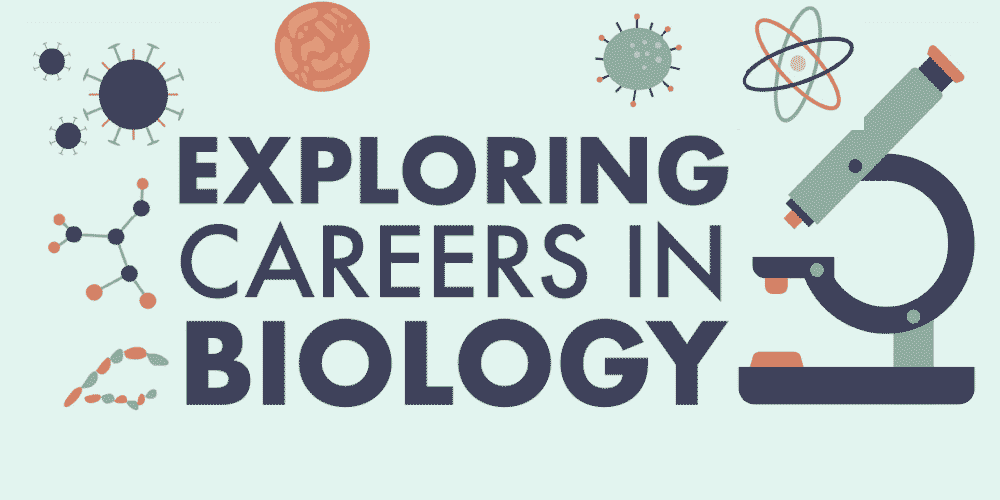
This image is property of fas.camden.rutgers.edu.
Academic Requirements
To embark on a career in biology, you will need to meet certain academic requirements. These will vary depending on the specific field you wish to pursue and the level of education you aim to achieve. Let’s explore the academic requirements for different degrees and certifications within the field of biology.
Undergraduate Degree
To start your journey in biology, obtaining an undergraduate degree is usually the first step. Most entry-level positions in the field require at least a bachelor’s degree in biology or a related discipline. During your undergraduate studies, you will gain a broad foundation in the different branches of biology, including ecology, genetics, microbiology, botany, and zoology.
Graduate Degree
For those looking to deepen their knowledge and enhance their career prospects, pursuing a graduate degree in biology is a wise choice. A master’s degree or a Ph.D. in a specialized area of biology can open up opportunities for higher-level positions, research, and teaching. Graduate programs often offer specialized coursework and research opportunities in fields such as molecular biology, biotechnology, marine biology, biochemistry, and environmental science.
Specialized Certifications
In addition to formal degrees, obtaining specialized certifications can also enhance your credentials and open up specific career paths within biology. Certifications in areas such as laboratory techniques, data analysis, and experimental design can demonstrate expertise and proficiency in specific skill sets, making you more competitive in the job market.
Different Fields within Biology
Biology is a vast field with numerous sub-disciplines that cater to various interests and career paths. Here are some of the different fields within biology that you can explore:
Ecology
Ecology focuses on the study of organisms and their interactions with each other and their environment. Ecologists work to understand ecosystems and how they function, addressing issues such as conservation, biodiversity, and the impact of human activities on the natural world.
Genetics
Genetics involves the study of genes and heredity in organisms. Geneticists investigate how traits are passed down from one generation to the next, explore genetic disorders and diseases, and develop technologies for genetic engineering and modification.
Microbiology
Microbiology deals with the study of microscopic organisms such as bacteria, viruses, fungi, and parasites. Microbiologists play a crucial role in researching and understanding how microorganisms affect human health, the environment, and various industries such as food production and pharmaceuticals.
Botany
Botany focuses on the study of plants, from their structure and function to their classification and distribution. Botanists contribute to fields such as agriculture, conservation, and plant breeding, as well as researching the medicinal properties of plants.
Zoology
Zoology is the branch of biology that explores the animal kingdom. Zoologists study animals’ behavior, anatomy, physiology, and evolution. They may work in a variety of settings, from conducting field research on endangered species to studying animal behavior in captivity.
Molecular Biology
Molecular biology delves into the study of biological processes at the molecular level. This field examines how DNA, RNA, and proteins interact to control cellular functions and can be applied to various areas such as genetics, medicine, and biotechnology.
Biotechnology
Biotechnology involves the use of biological systems, organisms, or their derivatives to develop new technologies and products. Biotechnologists work in areas such as genetic engineering, pharmaceutical development, agriculture, and environmental remediation.
Marine Biology
Marine biology focuses on the study of organisms and ecosystems in the oceans and other bodies of water. Marine biologists may research marine organisms’ adaptations, biodiversity, and the impact of human activities on marine environments.
Biochemistry
Biochemistry investigates the chemical processes and reactions that occur within living organisms. Biochemists study the structures and functions of proteins, nucleic acids, carbohydrates, and lipids and how they influence biological systems.
Environmental Science
Environmental science combines elements of biology, chemistry, and other disciplines to study the environment and its diverse components. Environmental scientists work to understand and address environmental issues such as pollution, climate change, and sustainable resource management.
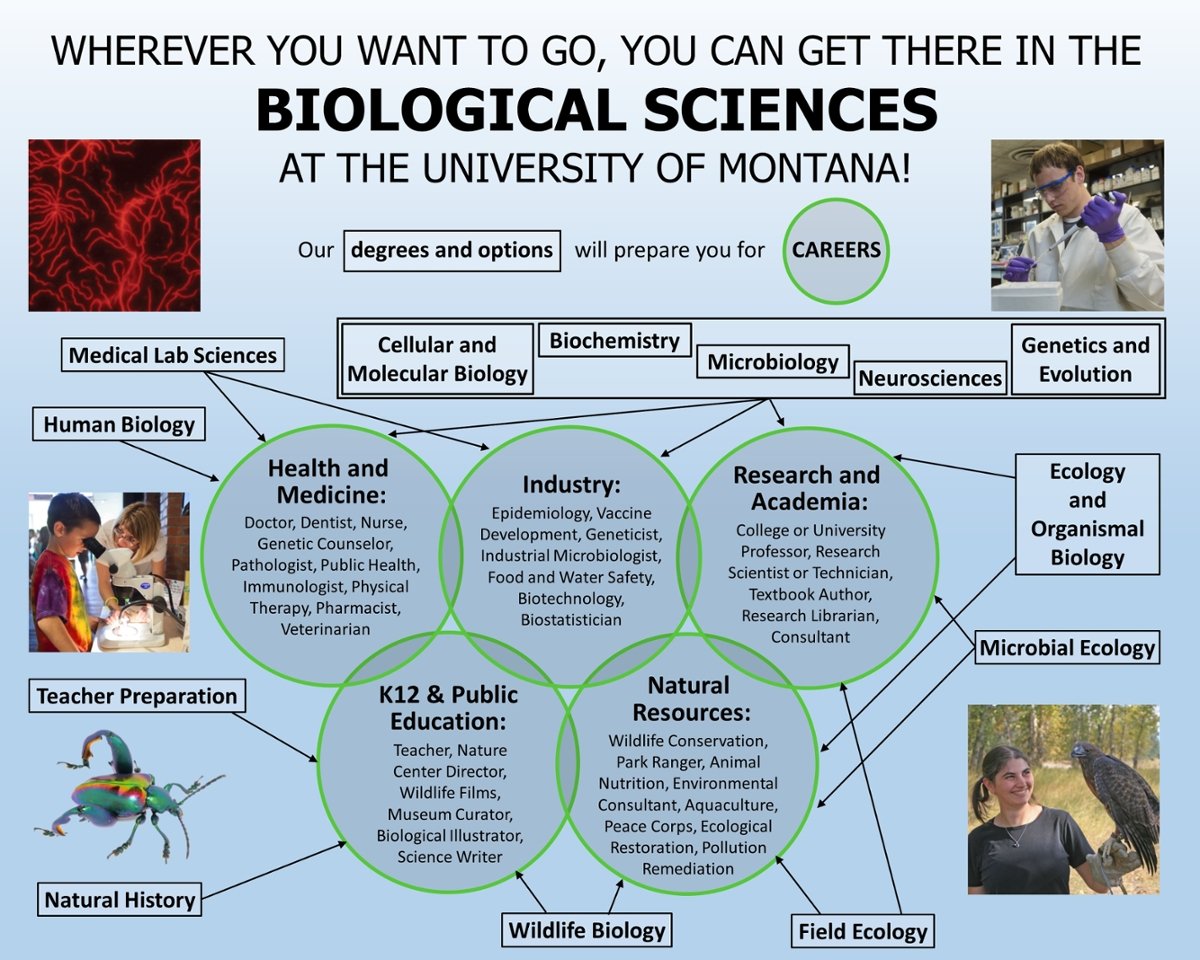
This image is property of www.umt.edu.
Job Opportunities
Once you have completed your education and gained the necessary skills and knowledge, a wide range of job opportunities await in the field of biology. Let’s explore some of the exciting career paths that you can pursue as a biologist.
Research Scientist
As a research scientist, you will play a crucial role in advancing scientific knowledge. You may work in academic institutions, government agencies, or private research laboratories, conducting experiments, analyzing data, and publishing your findings. Research scientists often specialize in specific areas such as genetics, ecology, or molecular biology.
Medical Scientist
Medical scientists contribute to the field of healthcare by conducting research to understand diseases, develop treatments and therapies, and improve diagnostic tools. They may work in universities, pharmaceutical companies, or hospitals, collaborating with healthcare professionals to translate research into clinical practice.
Environmental Consultant
Environmental consultants provide expertise and advice on environmental issues to businesses, government agencies, and organizations. They assess potential environmental impacts of projects, develop strategies for sustainability, and ensure compliance with environmental regulations. Environmental consultants often specialize in areas such as ecological risk assessment or pollution prevention.
Forensic Scientist
Forensic scientists apply scientific knowledge and techniques to analyze evidence for legal purposes. In the field of biology, forensic scientists may examine DNA samples, analyze body fluids, or study plant and animal remains to provide crucial information for criminal investigations.
Pharmaceutical Sales Representative
Pharmaceutical sales representatives play a vital role in promoting and selling pharmaceutical products to medical professionals and healthcare facilities. With a background in biology, you can showcase your scientific knowledge and explain the benefits of specific medications to help improve patient care.
Secondary School Teacher
If you have a passion for education and enjoy sharing your knowledge, becoming a secondary school biology teacher may be a fulfilling career choice. As a teacher, you will inspire and educate future generations, fostering an interest in biology and promoting scientific literacy.
Environmental Scientist
Environmental scientists work to address environmental issues and promote sustainable practices. They may conduct research, collect data, and analyze environmental impacts. Environmental scientists often collaborate with government agencies, non-profit organizations, or private firms to develop strategies for environmental protection and resource conservation.
Zoologist
As a zoologist, you will study animals’ behavior, physiology, and habitats. Zoologists can work in a variety of settings, including zoos, wildlife rehabilitation centers, or research institutions. They contribute to conservation efforts, monitor and manage animal populations, and conduct research to better understand animal species.
Microbiologist
Microbiologists study microorganisms and their impact on human health, the environment, and various industries. They may work in laboratories, conducting experiments to analyze and identify microorganisms, developing vaccines, or researching antimicrobial agents to combat infectious diseases.
Biotechnologist
Biotechnologists apply biological principles and technologies to develop new products, treatments, and processes. They may work in pharmaceutical companies, agricultural firms, or research institutions, using genetic engineering techniques or cell culture methods to advance medical, agricultural, or industrial applications.
Work Environment
As a biologist, your work environment may vary depending on your chosen career path. Let’s explore some of the different work environments where biologists may find themselves fulfilling their roles.
Laboratories
Laboratories serve as the hub of scientific research and experimentation for biologists. Whether in academia, industry, or government agencies, laboratories provide a controlled setting for conducting experiments, analyzing samples, and developing innovative techniques.
Field Research
Biologists often venture into the field to gather data, study organisms in their natural habitats, and conduct experiments outside the confines of a laboratory. Field research may involve traversing various ecosystems, collecting samples, recording observations, and monitoring environmental conditions.
Hospitals
In the realm of medical biology and healthcare, biologists may find themselves working within hospital settings. Opportunities range from conducting research in hospital laboratories to collaborating with healthcare professionals to provide specialized care and diagnostics.
Classrooms
For those passionate about education, classrooms offer a fulfilling work environment as biology teachers. Teaching at secondary schools or universities allows you to impart knowledge, engage and inspire students, and contribute to their scientific understanding.
Natural Reserves
Biologists working in ecology, conservation, or wildlife biology may spend time in natural reserves, studying ecosystems, monitoring biodiversity, and implementing conservation strategies. These outdoor environments provide opportunities to observe and protect various species and habitats.
Pharmaceutical Companies
Those interested in the pharmaceutical industry may work in research and development departments within pharmaceutical companies. Here, biologists contribute to drug discovery, clinical trials, and the development of new therapies or treatments.
Government Agencies
Government agencies at the local, state, or federal levels employ biologists in various capacities. These agencies may focus on environmental protection, natural resources, public health, or agricultural research, offering biologists opportunities to work on policy development, regulation, and scientific investigations.
Zoos or Wildlife Rehabilitation Centers
Biologists with a keen interest in studying and conserving animal species may find themselves working in zoos or wildlife rehabilitation centers. In these settings, they participate in animal care, conservation efforts, species management programs, and public education initiatives.
Research Institutes
Research institutes, both public and private, provide dedicated spaces for scientists to conduct specialized research. These institutes often focus on specific areas of biology, such as genetics, biotechnology, or marine biology, and offer state-of-the-art facilities and resources.
Universities
Universities are not only centers for learning but also hotbeds of scientific research. Biologists can work as faculty members, conducting research, teaching students, and mentoring aspiring scientists. Universities provide an environment that fosters collaboration and the exploration of new scientific frontiers.
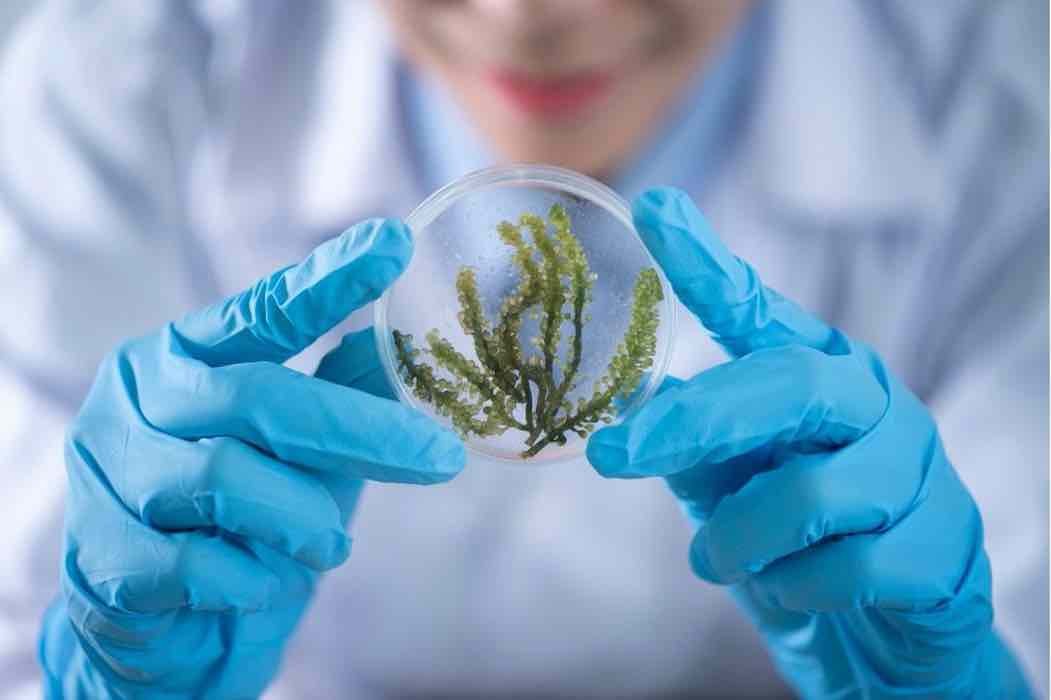
This image is property of blog.nextstepu.com.
Salary Range
The salary range for biologists can vary depending on factors such as education, experience, specialization, industry, and geographic location. Let’s take a look at the salary range for different levels of positions within the field of biology.
Entry-level Positions
For those entering the workforce with a bachelor’s degree in biology or a related field, entry-level positions typically offer a starting salary in the range of $35,000 to $50,000 per year. These positions often provide opportunities to gain experience and develop foundational skills.
Mid-level Positions
As biologists progress in their careers and gain more experience and advanced degrees, mid-level positions offer higher salaries. Salaries for mid-level positions in biology can range from $50,000 to $80,000 per year. Individuals in these positions often assume more responsibilities, such as overseeing projects and leading research teams.
Senior-level Positions
With significant experience, advanced degrees, and a track record of accomplishments, senior-level biologists can earn higher salaries. Senior-level positions, such as research directors, department heads, or senior scientists, can command salaries in the range of $80,000 to $150,000 per year or more.
Variances based on Industry and Location
It is important to note that salaries within the field of biology can vary depending on the industry and location. For example, biologists working in pharmaceutical research and development or biotechnology companies may earn higher salaries compared to those in academic or government settings. Similarly, salaries can differ based on the cost of living and demand for biologists in different regions or countries.
Required Skills
A successful career in biology requires a diverse set of skills that enable you to carry out research, analyze data, communicate findings, and collaborate effectively. Let’s take a closer look at some of the key skills that biologists need to thrive in their roles.
Analytical Thinking
Biologists must possess strong analytical thinking skills to examine data, draw conclusions, and develop innovative approaches to research questions. This involves assessing complex information, identifying patterns, and using logical reasoning to arrive at evidence-based interpretations.
Problem-solving
The ability to solve problems is crucial in biology, as scientists are constantly faced with challenges and unknowns. Biologists must be adept at developing hypotheses, designing experiments, and troubleshooting issues that arise throughout their research endeavors.
Attention to Detail
Biology often requires careful observation and attention to detail. Whether observing organisms in their natural habitats, analyzing microscopic data, or preparing laboratory experiments, biologists must pay close attention to ensure accuracy and consistency in their work.
Communication Skills
Effective communication is essential for biologists to convey their research findings, collaborate with colleagues, and engage with the public. Biologists must be able to articulate complex scientific concepts in a clear and accessible manner, both in written reports and oral presentations.
Data Analysis
Biologists frequently deal with large amounts of data, such as DNA sequences, experimental results, or ecological surveys. Proficiency in data analysis tools, statistical analysis, and data visualization allows biologists to extract meaningful insights from complex datasets.
Experimental Design
Designing experiments that generate reliable and valid results is vital in biology. Biologists must be skilled in experimental design, including formulating research questions, selecting appropriate methods and controls, and determining sample sizes to ensure statistically significant outcomes.
Laboratory Techniques
Laboratory work is a fundamental aspect of biology, requiring proficiency in various experimental techniques and instrumentation. Biologists must have hands-on experience with techniques such as DNA extraction, cell culturing, microscopy, chromatography, and PCR.
Information Management
With the abundance of scientific literature and data available, biologists need excellent information management skills. This includes organizing and synthesizing information, staying up to date with advancements in their field, and effectively utilizing reference databases and scientific journals.
Critical Thinking
Biologists must possess strong critical thinking skills to evaluate scientific evidence, assess the validity of research findings, and recognize potential biases or limitations. Critical thinking enables biologists to approach problems and questions with intellectual rigor and a questioning mindset.
Collaboration
Collaboration is an integral part of biological research, as scientists often work in interdisciplinary teams or collaborate with colleagues from different institutions. The ability to work collaboratively, share ideas, and engage in constructive discussions fosters innovation and accelerates scientific progress.
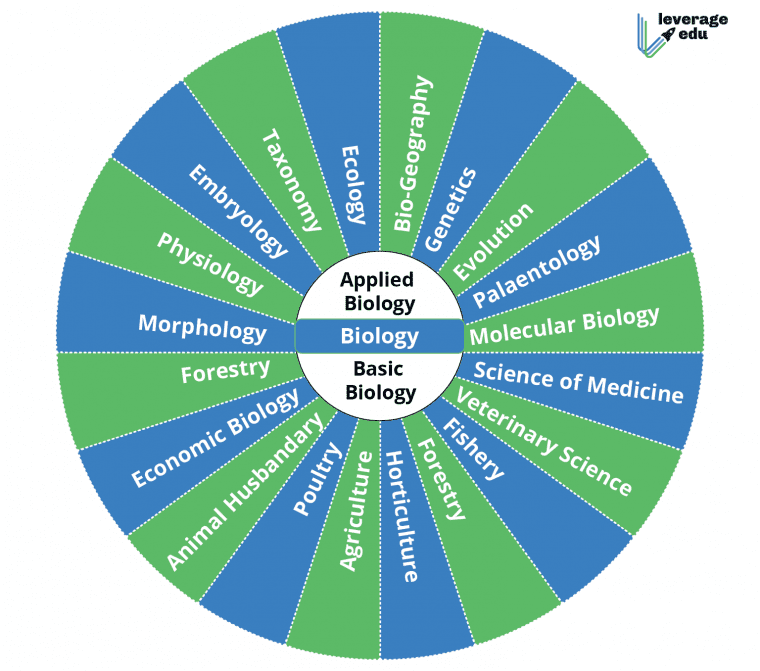
This image is property of leverageedu.com.
Career Advancement
As you grow in your career as a biologist, numerous paths for advancement and professional development open up. Let’s explore some of the ways you can advance your career and continue to expand your knowledge and expertise.
Continuing Education
Continuing education is a vital component of career advancement in biology. As the field evolves and new discoveries are made, staying up to date with the latest research and technologies is essential. This can involve attending workshops, conferences, and seminars or pursuing advanced degrees or specialized certifications.
Specialization and Research
Developing expertise in a specific area of biology can open doors to more specialized roles and advancement opportunities. By delving deeper into a particular field, such as genetics, marine biology, or biochemistry, you can become a sought-after specialist, broaden your research portfolio, and contribute to scientific breakthroughs.
Professional Networking
Building a strong professional network is essential for career advancement in any field, including biology. Engaging with colleagues, attending scientific conferences, joining professional organizations, and actively participating in online forums can provide opportunities for collaboration, mentorship, and future career prospects.
Management and Leadership
As your career progresses, you may consider transitioning into management or leadership roles. Leading research teams, overseeing projects, or managing scientific departments requires strong organizational, interpersonal, and decision-making skills.
Publication and Presentations
Publishing research articles in scientific journals and presenting your findings at conferences not only contributes to scientific knowledge but also enhances your professional reputation. Publishing and presenting demonstrate your expertise, provide opportunities for collaboration, and can lead to invitations for research collaborations or speaking engagements.
Grants and Funding
Securing external funding through grants is a significant aspect of career advancement in biology. Obtaining research funding allows biologists to pursue ambitious projects, expand their research teams, and build a track record of success, thereby increasing their standing in the scientific community.
Professional Organizations
Joining and actively participating in professional organizations is a valuable way to connect with fellow biologists, access resources and opportunities, and stay informed about advancements in the field. Here are some prominent professional organizations in the field of biology:
American Institute of Biological Sciences (AIBS)
The American Institute of Biological Sciences is an organization that represents biologists and biology societies. AIBS promotes scientific research, education, and public understanding of biology, while also providing resources, publications, and networking opportunities for its members.
Society for Integrative and Comparative Biology (SICB)
The Society for Integrative and Comparative Biology focuses on promoting the study of integrative and comparative biology. SICB encourages interdisciplinary research and provides a platform for scientists from various disciplines to collaborate and share their discoveries.
American Society for Biochemistry and Molecular Biology (ASBMB)
The American Society for Biochemistry and Molecular Biology serves as an advocate for biochemistry and molecular biology researchers. ASBMB offers educational resources, professional development opportunities, and networking platforms to its members, while also promoting advancements in the field.
Ecological Society of America (ESA)
The Ecological Society of America is a community of ecological scientists dedicated to promoting ecological research and fostering the exchange of ecological knowledge. ESA organizes conferences, publishes scientific journals, and advocates for ecological research and policy.
American Society for Microbiology (ASM)
The American Society for Microbiology is an organization that supports microbial scientists and promotes the understanding of microbiology. ASM offers resources, conferences, and publications, as well as fostering collaborations and disseminating advances in microbiological research.
Genetics Society of America (GSA)
The Genetics Society of America is a community of geneticists that aims to advance the understanding of genetics and genomics. GSA provides platforms for scientists to share their research, organizes conferences, and publishes scientific journals.
Botanical Society of America (BSA)
The Botanical Society of America is an organization dedicated to promoting research and education in plant biology. BSA offers resources for plant scientists, organizes conferences and symposia, and publishes scientific journals in the field of botany.
American Association of Pharmaceutical Scientists (AAPS)
The American Association of Pharmaceutical Scientists caters to professionals working in pharmaceutical sciences, including biochemistry, pharmacology, and drug development. AAPS offers networking opportunities, publications, and educational resources for those involved in pharmaceutical research and development.
National Association of Biology Teachers (NABT)
The National Association of Biology Teachers is an organization that supports biology education at various levels. NABT provides resources, professional development opportunities, and a network for biology educators to enhance their teaching practices and promote student engagement in biology.
Association of Zoos and Aquariums (AZA)
The Association of Zoos and Aquariums represents zoos, aquariums, and wildlife conservation organizations. AZA facilitates collaboration among these institutions, promotes conservation efforts, and sets standards for animal care and welfare.
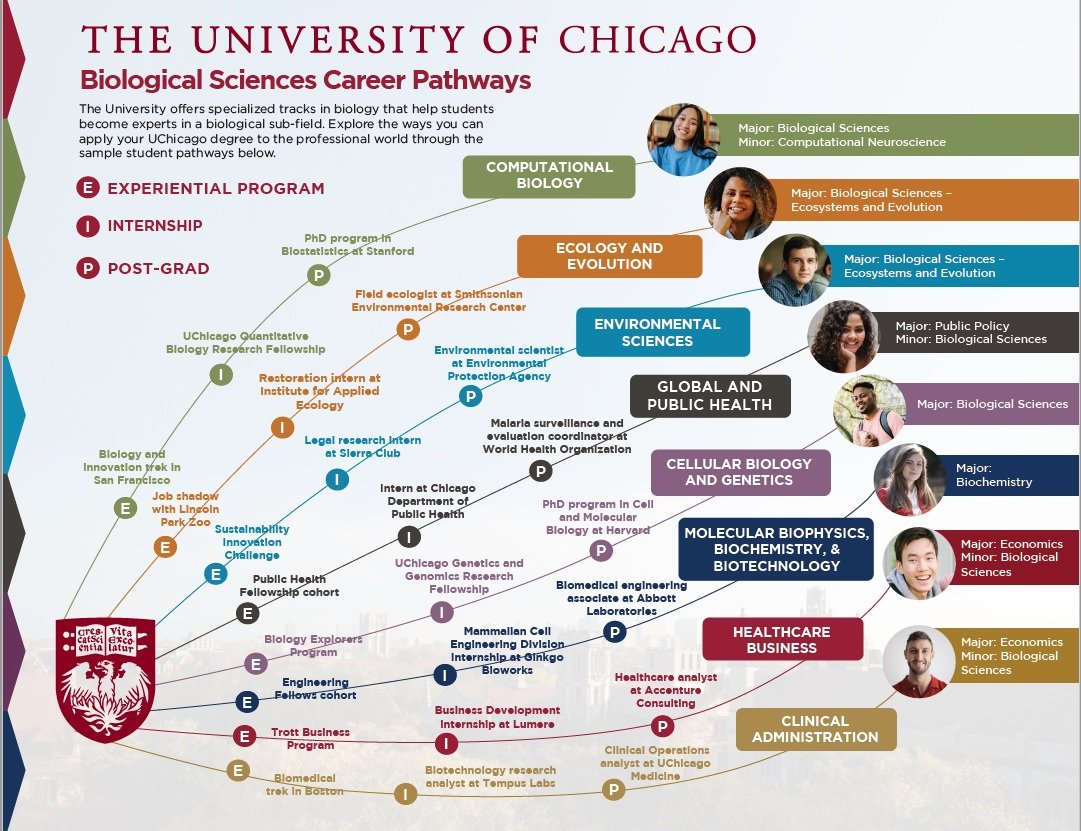
This image is property of careeradvancement.uchicago.edu.
Challenges and Rewards
As with any career, working in the field of biology comes with its own set of challenges and rewards. Let’s explore some of the common aspects that biologists experience throughout their careers.
Work-Life Balance
Balancing work demands with personal life can be challenging in the field of biology, especially during times of intensive research or fieldwork. However, many biologists find fulfillment in their work and develop strategies to maintain a healthy work-life balance.
Competitive Job Market
The field of biology is highly competitive, with a limited number of positions available at each level. Biologists must demonstrate a strong skill set, relevant experience, and continuous professional development to stand out in the job market.
Continual Learning and Adaptation
Advancements in biological research and technologies occur rapidly, requiring biologists to continually learn and adapt. Staying up to date with the latest discoveries, methodologies, and techniques is critical to maintain relevance and advance in the field.
Contribution to Scientific Knowledge
One of the most rewarding aspects of a career in biology is the opportunity to contribute to scientific knowledge. Through research, experimentation, and collaboration, biologists can make discoveries that advance our understanding of the natural world and contribute to solving important societal challenges.
Positive Impact on Society
Biology plays a crucial role in addressing global issues such as climate change, disease prevention, conservation, and food security. Biologists have the opportunity to make a positive impact on society by developing sustainable practices, improving human health, and preserving biodiversity.
Opportunities for Innovation
Biology is a field ripe with opportunities for innovation. Biologists contribute to the development of new technologies, treatments, and solutions to address pressing environmental and health challenges. Being at the forefront of scientific progress allows biologists to be drivers of innovation.
Flexibility in Work
Many biologists benefit from the flexibility in their work, whether through fieldwork, lab experiments, or conducting research remotely. This flexibility can provide diverse experiences, autonomy, and the ability to balance work and personal life.
Personal Fulfillment
A career in biology can provide personal fulfillment for those driven by curiosity and a passion for understanding life’s complexities. The ability to contribute to scientific knowledge, make a positive impact, and continuously learn and innovate can bring a sense of purpose and fulfillment.
Environmental Stewardship
Biology is closely linked to environmental stewardship, as scientists work to understand and protect our planet’s ecosystems. For biologists dedicated to conservation, having a career in biology allows them to actively contribute to preserving biodiversity and promoting sustainable practices.
Health and Medical Advancements
Biological research and discoveries have led to remarkable advancements in human health and medical treatments. Biologists have the opportunity to develop innovative therapies, contribute to disease prevention efforts, and improve the overall quality of life for individuals and communities.
Conclusion
Considering a career in biology offers a myriad of opportunities, with growing demand, diverse specializations, and the potential for making a positive impact on society. From ecology and genetics to microbiology and zoology, biology encompasses a wide range of fields that cater to various interests and passions. With the advancement in scientific knowledge, the potential for impact in environmental conservation and healthcare continues to expand. Whether pursuing research, teaching, or working in industry or government, the field of biology promises a promising career with continuous learning and innovation while contributing to scientific knowledge and understanding.